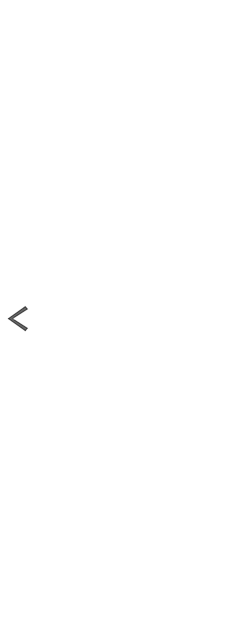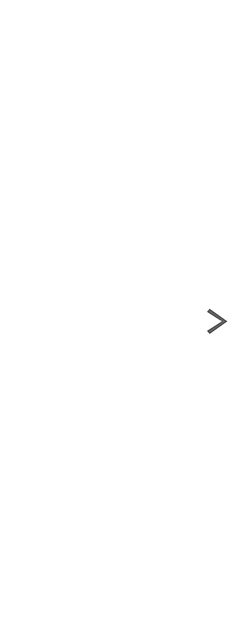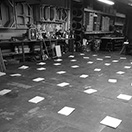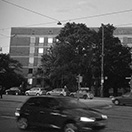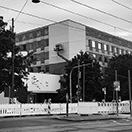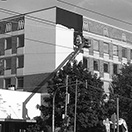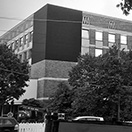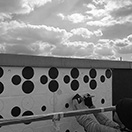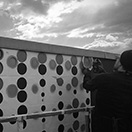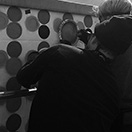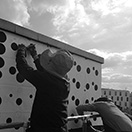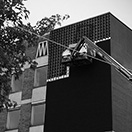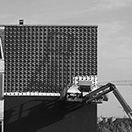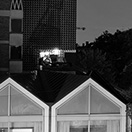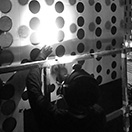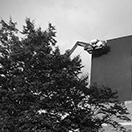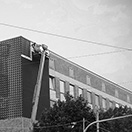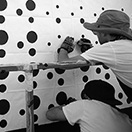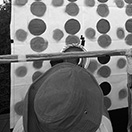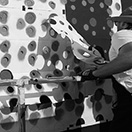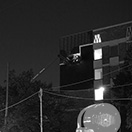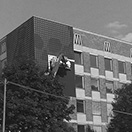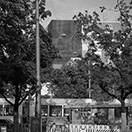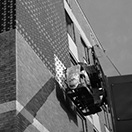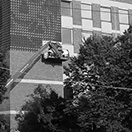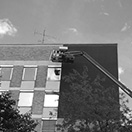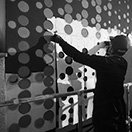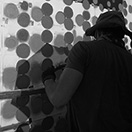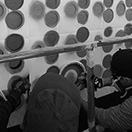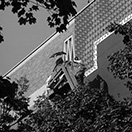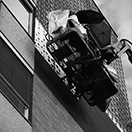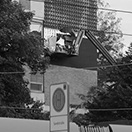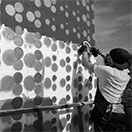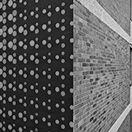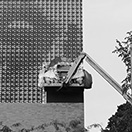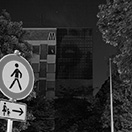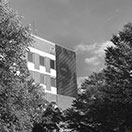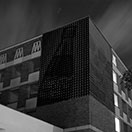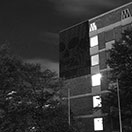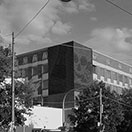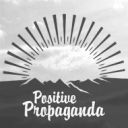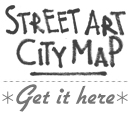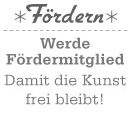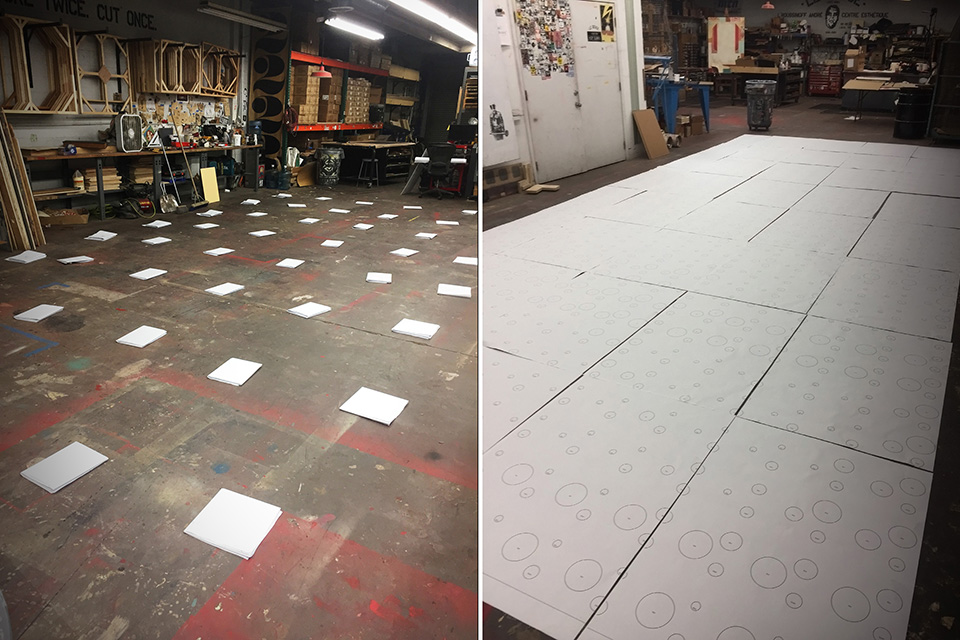
Preperations at Shepard Faireys studio - Le Deuce
Dashing between meetings, brainstorming sessions and pitches, day after day young “creatives” work in huge advertising agencies on new ways and means to convince the satiated, jaded consumer to make their next purchase. And they won’t stop at anything in their mission.
It is meanwhile a constant presence in our everyday lives – advertising in the form of large-format placards, digital billboards and animated online banners. The result is that we are being subliminally confronted with up to ten thousand advertising messages on a daily basis: selling us products we don’t need, to impress people we don’t even like, financed with money that we often don’t actually have.
In 2002, Hamburg advertising agency Jung von Matt overstepped an ethical line when they came up with an advertising slogan for a chain of electronics stores now found in several European countries. For a good ten years they used the slogan “Geiz ist geil” (which roughly translates as “Cheap is the new cool”). With it, the agency created a train of thought and neoliberal philosophy that have made price dumping, along with all of its societal consequences, socially acceptable. And this wasn’t an isolated incident either...
On the other hand, like yin and yang, the advertising industry is often coming up with supposedly fair, healthy or sustainable campaigns to appeal to the conscience of the sinful consumer. Just recently the world’s most well-known soft drinks manufacturer Coca-Cola reacted to two hotly discussed additives that cause a health risk – sugar and aspartame in their so-called “Light” products – by launching a “green”, environmentally-friendly looking “LIFE” range. But just a few days after it was released, the Federation of German Consumer Organisations criticised the fact “that the still very high sugar content of the soft drink contradicts the marketing strategy portraying it as a supposedly healthy alternative to Coca-Cola.” This exposed the greenwashing thought up by marketing experts that is served up to us almost everywhere we look, misleading us with clearly false advertising promises.
As a countermovement to the increasing commercial takeover of the big cities by multinational corporations, dedicated art activists around the globe have been trying for a good two decades now to nip this development in the bud. Using reflected interventions, their aim is to reclaim the public spaces that are increasingly being misused for aggressive, large-format advertising campaigns.
One of the most innovative representatives of this movement is SKULLPHONE, who has established himself as one of the most significant protagonists of the American street art scene within just ten years. At the end of the 1990s, placards and stencils of a skull with a mobile phone in its hand appeared around Los Angeles. This is why magazine LA Weekly christened the street-art activist, who has remained anonymous to this day SKULLPHONE.
SKULLPHONE made his artistic breakthrough in 2008 when he hacked into a large number of digital billboards in Los Angeles and replaced them with his art. In the years that followed, the artist developed a technique he calls “Digital Media Painting”. Due to the thousands of hand-painted dots in the screen colours RGB (red, green, blue), his pictures look like digital billboards that take a critical look at the public perception of advertising and the associated power that multinational firms hold over public spaces.
For his first international, large-format “Digital Media Painting” mural - initiated by the non-profit art association Positive-Propaganda, the artist focused on the abovementioned greenwashing campaign and the only brand whose products are consumed worldwide by both the richest and also the poorest people in the world.
SKULLPHONE based his work on a Coca-Cola Life advertising placard. The typical bottle shape he depicted was designed exactly one hundred years ago for Coca-Cola and has meanwhile become a universal symbol. SKULLPHONE’s large-format triptych provides food for thought that should be a wake-up call to all of us and get people talking about the power of these big corporations and the media.
SKULLPHONE based his work on a Coca-Cola Life advertising placard. The typical bottle shape he depicted was designed exactly one hundred years ago for Coca-Cola and has meanwhile become a universal symbol. SKULLPHONE’s large-format triptych provides food for thought that should be a wake-up call to all of us and get people talking about the power of these big corporations and the media.
LOCATION: - Dachauer Strasse 90, 80335 Munich

Deprecated: Creation of dynamic property Smarty_Internal_Template::$compiled is deprecated in /mnt/web219/a0/49/52302149/htdocs/positive-propaganda/smarty/3.1.33/sysplugins/smarty_internal_template.php on line 719
Deprecated: Creation of dynamic property Smarty_Internal_Template::$compiled is deprecated in /mnt/web219/a0/49/52302149/htdocs/positive-propaganda/smarty/3.1.33/sysplugins/smarty_internal_template.php on line 719


